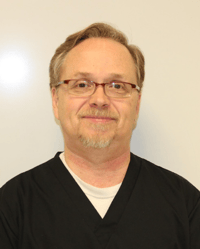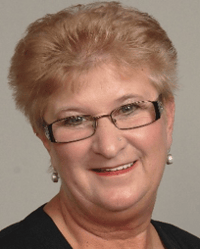This series addresses four different specialties and focuses on a specific condition/disease associated with that specialty. The specialties include OB-GYN, Cardiology, Dermatology and Pediatrics. Read individual descriptions associated with each one.

NHA CERTIFICATE HOLDERS: LOG IN TO ACCESS THE VIDEO PRESENTATION
Meet the Authors/Presenters

Morgan Baldwin, MSN, RN, CPNP works for General surgery Group at Cardinal Glennon Children's Hospital in, St. Louis MO.
She started her nursing career 15 years ago and obtained her CPNP 9 years ago. She has worked as a pediatric nurse practitioner in both primary care and emergency care settings and transitioned to inpatient care with a general surgery group three years ago.
Below, Baldwin provides insights and what you can expect to gain from the experience.
Pediatric Asthma: According to the World Health Organization, asthma is the most common chronic disease among children. The course of the disease is often difficult to predict and can be different for individuals. Children with asthma are more likely to experience complete remission of symptoms as they grow, unlike adults who often have lifelong chronic asthma symptoms. In this module, you will review the basic anatomical structures affected by asthma, its etiology and triggers, and learn about the clinical manifestations associated with asthma exacerbations. Additionally, you will learn how to educate patients about how to manage their disease and what to do should a crisis arise.
What do you hope certification holders get out of this presentation?
To gain a basic understanding of asthma care, maintenance and review of respiratory tract anatomy and physiology
What do you like about working with pediatric patients the most?
Working with pediatrics is so rewarding! Children are incredibly resilient. It is the most rewarding feeling to take care of a sick child, support them through their illness, then watch them thrive later on.
What are some great distraction techniques that can help with administering immunizations?
I like to talk during immunizations.... talk about everything, the weather, sports, pets.... make eye contact and just keep talking, usually you can distract enough to quickly administer the immunizations
What are some common misconceptions that parents have about immunizing their children?
The most common misconception is that vaccines cause autism. THIS IS ABSOLUTELY FALSE. Parents should be reassured that the preservatives in immunizations do not cause autism and the "science" behind those claims was purely based on funding from drug companies.

Deborah L. D’Aurora MS BSN RN NE-BC works for General surgery Group at Cardinal Glennon Children's Hospital in, St. Louis MO.
Deborah D’Aurora is employed by OhioHealth as a clinical educator and has over 30 years of experience in obstetric and gynecologic care. She previously acted as Administrative Manager of the Outpatient Care Center for Grant Medical Center and was responsible for the operational and business direction of the Primary Care, Transition of Care and the OB/Gyn Clinics. Deborah is Masters prepared in Health Care and Human Services Administration, has a BSN and is certified by the ANCC as a nurse executive. Ms. D’Aurora is a Crucial Conversations Master Trainer and has implemented Crucial Conversations and Influencer training for safety champions at Riverside Methodist Hospital leading to measurable increases in observation activity and effective communication skills. Deborah has presented her work at the Mayo Clinic, the American Organization of Nurse Executives conferences and The Professional Nurse Educator Conference in Baltimore, Maryland. Additional education includes: Project Management Certification from ASTD, Level Three Healing Touch Certification and Influencer facilitation training.
Below, D'Aurora provides insights and what you can expect to gain from the experience.
Perinatal Substance Use: The pregnant and laboring patient, the newborn and the mother/infant dyad. The stigma frequently associated with addictive substance use during pregnancy has been linked, in the minds of some, with poor parenting and a lack of empathy for the unborn child. Care providers may give different care, even subconsciously, due to their distaste for the patient’s behaviors and perhaps even concern about their own ability to provide adequate care in such complex situations. A closer look at these patients, what leads to their substance use and how to best help them may begin to create the change necessary to truly provide the most effective and timely care to the pregnant woman and her baby
What do you hope certification holders get out of this presentation?
Certificants should gain an understanding of addictive substance use during pregnancy what leads to their substance use and how to best help them may begin to create the change necessary to truly provide the most effective and timely care to the pregnant woman and her baby.
What is one of the most common concerns OB patients have about their condition?
Most OB patients want to know if their baby’s health will be impacted by their substance use, how they can ensure their heath as well as the baby’s health and what is the best way to accomplish this.
What are ideal characteristics that healthcare workers should possess to work in an OB-GYN setting?
Healthcare workers should adopt a sense of compassion and acceptance when dealing with these patients. An understanding of how to communicate with a woman who is anxious and probably not acting as she normally would in a better situation helps to serve the provider and patient as well.

Joseph W. Amoral, III MSN, RN, CMA works Beal College as an ADN Program Director.
Joseph has been involved in health care education for multiple years, including the Health Sciences and Nursing. He has taught in both in classroom and clinical settings, as well as online platforms. Joe has been responsible for developing several courses, including A&P, which delves into the integumentary system.
Below, Amoral provides insights and what you can expect to gain from the experience.
Common Dermatological Diseases: This module discusses a variety of skin conditions common to primary care or dermatological offices. Understanding disease processes can provide clarity to the patient about his or her symptoms. Learning about disease processes will also help when providing patient education regarding how to manage symptoms when flareups occur. In addition, health care professionals will learn how to answer questions about treatments and interventions that are common in dermatology practices.
What do you hope certification holders get out of this presentation?
I hope the certificants are able to grasp some of the basics of how to identify integumentary problems on the human body, along with some basic understandings of how these common skin conditions can be tested for and treated, with a goal better patient care and education.
Other than questions related to to their condition, what additional questions should every patient ask their dermatologist?
"What can I do from a nutrition standpoint to improve skin health?"
"What is the best way to care for skin at various stages of life?"
"How often should skin be examined and checked in order to catch problems at an early stage?"
What are some causes and risk factors of skin care?
Having fair skin, any history of sunburns (especially if any second or third degree burns occurs as a child). Excessive sun exposure, living in areas with higher elevation to the sun, and family history.

Nancy Szwydek, MPH, RN, RHIA, RMA, CRAT, CMAC who works for Purdue University Global.
Nancy is the assistant dean and department chair for Purdue Global. She is responsible for managing and monitoring programmatic accreditation processes and documentation for multiple programs within the School of Health Sciences. In 2016, she became the academic program chair for the health information management, health informatics, and billing and coding programs and has spearheaded PCAP approval for the Billing and Coding program and AEP designation for the Master of Health Informatics and Health Information Management programs. She recently assumed the chair position for the medical assisting program and has been actively involved in completing the self study for CAAHEP accreditation. Previously, Szwydek worked as a registered nurse for over 30 years. In addition to her RN license, she also holds active RHIA, CRAT, RMA, and CMAC credentials. Nancy also serves as accreditation peer reviewer for the Commission of Accreditation for Allied Health Programs (CAAHEP) and Medical Assisting Education Review Board (MAERB) and was elected to the MAERB board in 2019.
Below, Szwydek provides insights and what you can expect to gain from the experience.
Atrial Fibrillation: Where Does it Originate, How is it Treated, and What Recent Discoveries Have Been Made? According to the CDC, an estimated 2.7–6.1 million people in the United States have AFib. With the aging of the U.S. population, this number is expected to increase. The more you know about this condition, the more you can assist patients with some routine questions that come up while working with them. After completing this offering, certificants will gain an understanding of atrial fibrillation, its causes and contributing factors as well as potential complications. Diagnostic measures and treatments associated with the condition will also be explored.
What do you hope certification holders get out of this presentation?
Certificants will be able to gain an understanding of what atrial fibrillation is, the causes and contributing factors associated with the condition as well as potential complications. They will also explore diagnostic measures and the various treatments available.
What are some common heart health misconceptions?
Whenever someone hears they have a heart condition, they may assume it's something they caused and that there is a poor prognosis. As noted in this article, sometimes, the issue is related to aging and with the proper treatment, a patient can live a relatively normal healthy life.
Where do certificants go from here with this information?
It is important to realize that there is constantly new technology and research being conducted and new medications and treatments on the horizon. Take the information you learned from this offering and apply it in the field. Empower yourself with as much continuing education as possible. Select topics that will assist you with the patients you serve.
LOG IN TO ACCESS THE VIDEO PRESENTATION >>
NHA CERTIFICATE HOLDERS: LOG IN TO ACCESS THE VIDEO PRESENTATION >>
Before completing NHA CE, we recommend checking the rules and regulations of the licensing or regulatory agency for your state, in case there are different requirements.

